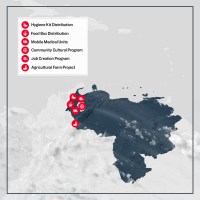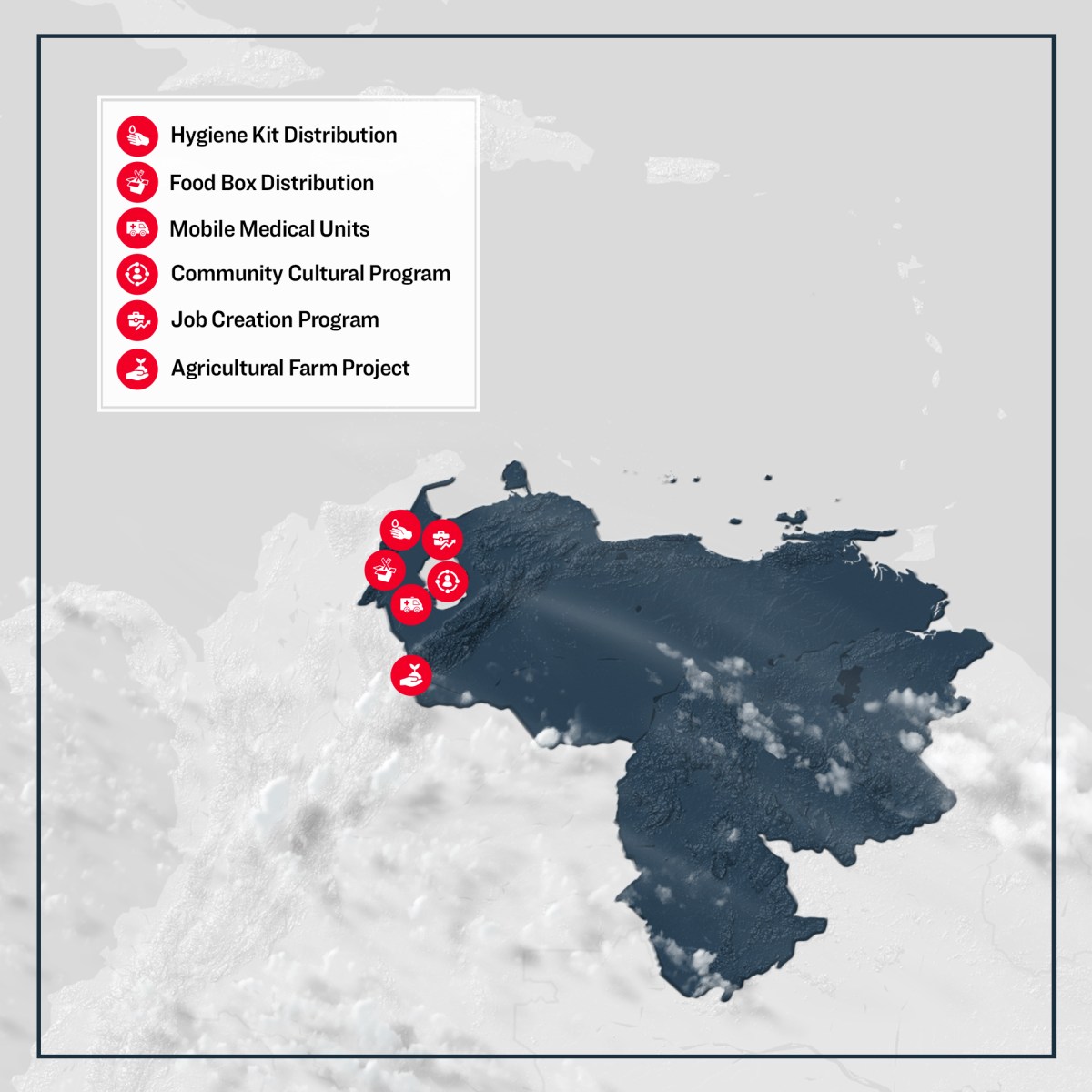Country Overview
Over 76% of Venezuelan men, women, and children live in extreme poverty. Parents can’t afford gasoline to put in their cars, making going to work nearly impossible. Hyperinflation reduces purchasing power, so money becomes more worthless from one day to the next. Venezuela’s economic collapse is the largest of any country not at war in almost 50 years. Poor governance, corruption, and US-imposed sanctions have “brought Venezuela to its knees.”
A country “brought to its knees” makes a catchy headline, but what does it mean for the people who live there? It means, if they can, they leave in order to survive. Almost six million Venezuelans have been forced to migrate since 2014 due to hyperinflation, food insecurity, shortages of fuel, electricity, and clean water, the collapse of the country’s medical system, and violence. Men, women, and children walk steep roadways, sometimes stretching thousands of feet up, where the temperature is freezing, before they cross the Tachira River into Colombia. As of May, 2021, over 1.74 million Venezuelans had migrated to Colombia.
Because families would rather stay in their homes and communities than have to move to a new country to survive, our relief efforts concentrated on mitigating the reasons driving displacement. Together as a community, we responded in the following ways:
- 12,390 hungry and under-nourished men, women, and children received food packs.
- 750 people felt clean and restored after receiving hygiene kits.
- 4,388 family members received life-saving medical care and medicine.
- Over 2,000 moms, dads, and kids were brought together to share in each other’s cultures through games, live music, theater and puppets, soccer, and of course, ice cream.
- 26 potential new business owners were identified, and two new businesses were started– a carpentry shop and a fast food stand–providing much needed livelihoods.
- 53 local families received food from the proceeds from the community farm project. 430 kilograms of corn, 95 kilograms of cilantro, 397 kilograms of pumpkins and squash, and 120 eggs weekly were harvested and sold in a community market in 2021. We bought 933 chickens, 10 sheep and one lamb to provide meat and dairy products for sale. In the fall of 2021, papayas were planted and are growing strong, so next year’s yield–and the number of families we can serve–will be even bigger.
4 Factors Driving Displacement in Venezuela
Hyperinflation
According to the Venezuelan Central Bank, the inflation rate in 2020 was 2,959.8% and 686.4% in 2021. Bloomberg, a high-tech, data-driven information company, tracked the price of a cup of coffee in Caracas, the capital of Venezuela, from August, 2020 to August, 2021 to show how food prices had increased over the same period. The price on that cup of coffee jumped by 2,597%.
Food Insecurity
When your average minimum monthly salary is less than four dollars per month and there is hyperinflation, feeding your family is impossible. To buy basic food staples for one month, a Venezuelan on an average minimum salary requires 156 monthly salaries to buy basic foodstuff. One-third of all Venezuelans, nine million people, are food insecure. When you or your kids are food insecure, none of you eat three meals a day, or you don’t know where you will get your next meal. Venezuelan boys and girls are dying of issues stemming from hunger and malnutrition at increasingly higher rates.
A Collapsed Health Care System
In Venezuela, patients needing medical care have to bring their own supplies, including rubber gloves, intravenous tubing, hospital gowns, water, toilet paper, chemotherapy medicine, and urine cups. There are shortages of medicine and oxygen. Not enough water to wash your hands. A lack of basic health products. Sporadic electricity. Broken scanners and X-ray machines. Broken hospital elevators. Caved in hospital ceilings. Closed labs. Empty pharmacy shelves. Few available Covid-19 tests.
This is the state of health care in Venezuela.
Working conditions in public hospitals are so bad that 75% of physicians believe they violate their ethics and human rights. Public hospital doctors earn less than $10/month, so they, along with nurses and support staff, emigrate if they can. As a result, there are so few remaining health care providers in Venezuela that people can’t find care. Preventive healthcare measures, such as vaccinations and mosquito control, have plummeted, causing infectious diseases such as tuberculosis, diphtheria, measles, and malaria to resurge.
Violence
According to Human Rights Watch, the government’s security forces have conducted extrajudicial executions and forced disappearances, jailed opponents, prosecuted civilians in military courts, tortured detainees, jailed protestors, harrassed human rights defenders, and implemented brutal police practices. Likewise, criminal group “syndicates” control illegal mining in Bolivar state, employing tactics of graphic murders to maintain local control. The syndicates operate with government consent and occasional involvement.
Compounding violence are the armed groups which patrol the border areas between Venezuela and Colombia. Many emerged from the Revolutionary Armed Forces of Colombia (FARC). They use murder, rape, forced labor, and child recruitment to control society. When the border between Venezuela and Colombia closed due to Covid-19 in March, 2020, the smuggling of goods and people under armed groups’ control increased. According to Relief Web, people and contraband go from Venezuela to Colombia while drugs and men with guns flow from Colombia into Venezuela.
Venezuelan fathers, mothers, and children forge ahead despite life-choking poverty, failed civic-services, and community-destroying violence. As their need grows, our relief work continues.


